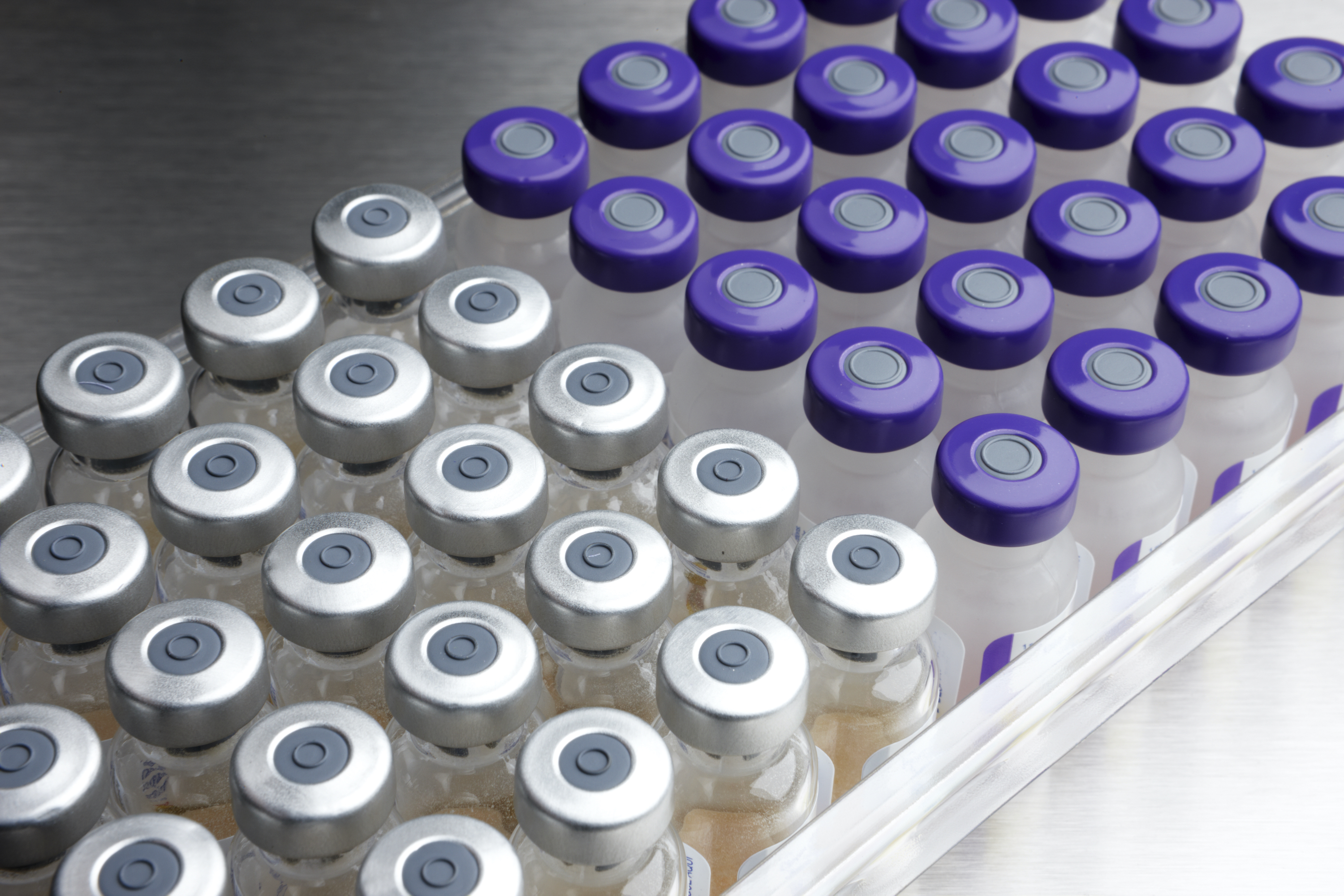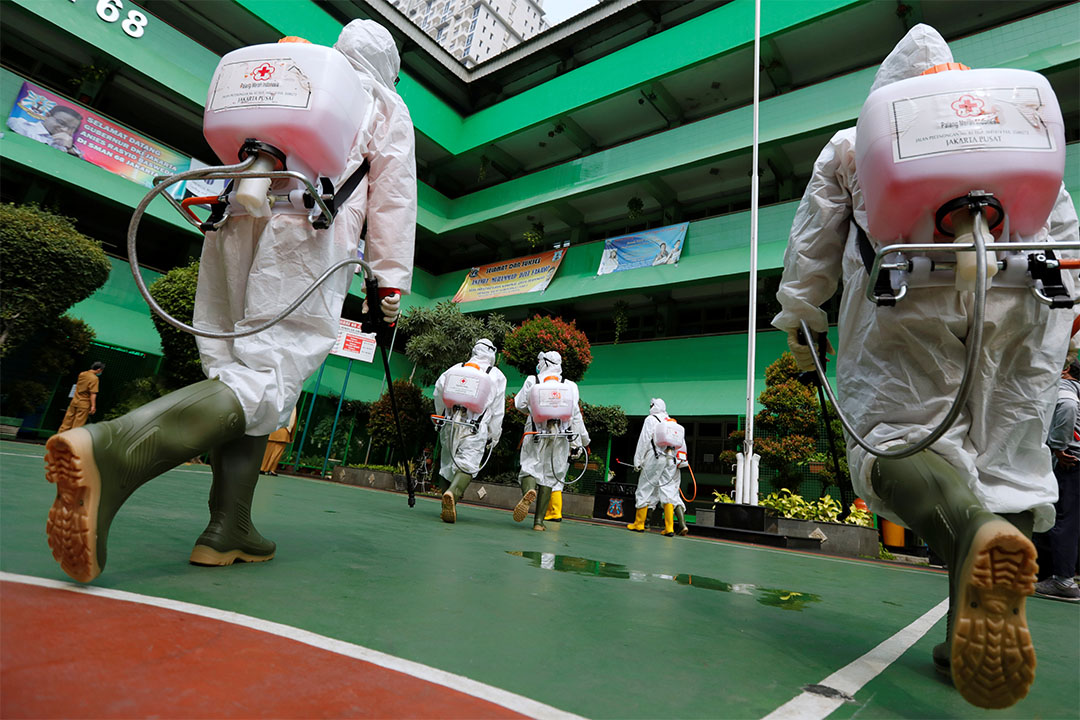
Success in the push to find a COVID-19 vaccine at record-breaking speed could hand the world a new problem. The first vaccine to cross the finish line might be only marginally effective, yet it could become the enemy of the good—or even the great—candidates in the wings by disrupting ongoing studies.
In all likelihood, the U.S. Food and Drug Administration (FDA) or other regulators will issue the first COVID-19 vaccine approval or emergency use authorization (EUA) for one vaccine while many other candidates have clinical trials still underway or in the planning. At that point, ongoing studies of any vaccine—including that first one—could become unethical, because half the study participants are getting a placebo, and now a vaccine with established efficacy will be available. "It's a very vexing issue," says Christine Grady, who heads the bioethics department at the Clinical Center of the U.S. National Institutes of Health (NIH), which organized a "grand rounds" webinar on the challenges last week.
"What's really important is that the science does continue," says Seth Berkley, who helps run an international effort, the COVID-19 Vaccines Global Access (COVAX) Facility, to develop and manufacture a portfolio of COVID-19 vaccines. He explains that the world needs multiple vaccines against the pandemic coronavirus. Not only might some work better than others, but because of cost or side effects, some might offer benefits to specific groups, such as the elderly, pregnant women, or those in low-income countries. "Even if multiple ones work, they may have characteristics that are particularly important for one population versus the other," says Berkley, who also heads the advocacy group Gavi, the Vaccine Alliance.
According to the World Health Organization's 2 October update of the COVID-19 vaccine "landscape," 42 candidates are in clinical trials. Ten are in phase III trials, in which tens of thousands of participants randomly and blindly receive either the candidate or a placebo while their health is closely monitored. If efficacy signals surface during scheduled, interim analyses of the studies, vaccine makers could seek EUAs before a trial reaches its planned end date. The EUA guidance issued by FDA stipulates that a candidate only need achieve 50% efficacy at preventing symptomatic COVID-19, and, as an added measure of safety, have had 2 months pass after roughly half the participants have received their final dose. (Russia and China have already granted their versions of EUAs for various vaccines but without any evidence of efficacy.)
Participants in the NIH webinar agreed that the first EUA for a COVID-19 vaccine will change the landscape for that vaccine's phase III trial and others. Should the blinded trial continue, to make sure that the early benefits pan out over a longer period of time, or should people in the placebo group immediately receive the vaccine? What if stopping the initial trial early reduces its ability to detect rare side effects, assess how long protection lasts, or compare the vaccine's efficacy in the elderly versus young adults?
And should ongoing phase III trials of other vaccines replace their placebo with the one that just showed efficacy? Will participants of those other trials drop out en masse? Will people refuse to even join new trials of yet other candidate vaccines, reasoning that they can get one that already works to some extent?
For all these questions, Grady tells ScienceInsider, the ethical equation "boils down to a fairly simple calculus": the individual versus the societal value. During the webinar, philosopher Joseph Millum framed the issue as "fundamental" to all clinical research. "Clinical research is ethically challenging because it exposes participants to risks for the benefit of others, not for the benefit of participants themselves," said Millum, who works with Grady at the Clinical Center.
Yet scientists and ethicists don't always solve the simple calculus the same way. Grady says if early results for a COVID-19 vaccine candidate lead to an EUA, participants in that trial would have a right to know whether they had received a worthless placebo or a vaccine that potentially could help them. "It's a benefit that people in the trial should have access to," she contends.
Millum counters that there's a need to balance the risk to the individual in a blinded study versus the benefit to society of continuing the trial. "Participants in the placebo arm are only being exposed to risk in the sense that the researchers are not providing something that could protect," he said at the webinar. If the chance that a person in the trial would be exposed to SARS-CoV-2 is relatively low, Millum said, then continuing the blinded study "could then be justified" in light of the need "to gather socially valuable information." This is especially true, he added, given that the world likely will benefit from having more than one COVID-19 vaccine, both because of the needs of different populations and so that supply can meet demand.
Stanford epidemiologist Steven Goodman agreed, stressing that vaccine studies differ "dramatically" from treatment trials, which aim to help people who have a disease. "If someone asked me whether a therapy for a serious disease should first be given to people participating in the control arms of the clinical trial testing that therapy," Goodman reasoned, "I would say, 'Absolutely, yes.'" But people receiving a placebo in a vaccine trial don't need it the way sick people need a treatment, he argued. A widely used vaccine, he noted, can create "herd" immunity by reducing the spread of a virus in a community. "If everyone around you has gotten a highly effective vaccine, you don't need it," said Goodman. "That shows that you don't have a problem that needs treating, but the population does." What's more, people have many nonmedical ways to protect themselves from SARS-CoV-2, including masks and social distancing. "In fact, if you can do those things, you might lower your individual risk more than what a partly effective vaccine could achieve," he said.
Grady said the questions become far more complicated when it comes to the impact of an EUA on other COVID-19 vaccine trials. If a trial of a different candidate has yet to start, ethical considerations may demand using the newly permitted product instead of a placebo. Such studies, known as a non-inferiority or superiority trial, are slower and more costly than trials comparing a vaccine to a placebo. If a trial is already underway—especially if it is close to fully enrolled—investigators could explain to participants the value to society of continuing the blinded study. They might choose to stick with the study, she says, especially if they were given this promise: "Whenever this trial is finished, we will give you the vaccine that's the most effective."
If the approved vaccine only offers a modest benefit, Grady adds, participants may be more willing to continue in a blinded study. A 50% chance of receiving a potentially better vaccine by staying in the trial might, in the end, be a better gamble. Many people in vaccine trials also have strong altruistic motives for participating, she notes. And if the first COVID-19 vaccine given an EUA or approval is scarce, the incentive to leave the trial may be lower. "If it's not available, it's not available," Grady says. Those who take part in a study of an unproven candidate at least have some chance of being protected.
If an emergency authorization or a full approval does disrupt vaccine trials, Berkley says, "bridging" studies could fill the gap. If researchers can identify the immune factors that correlate with protection by the approved vaccine, then efficacy trials can pivot to quickly assessing whether other candidates trigger a similar response, avoiding a placebo comparison. (Researchers would have to inform potential participants that a proven vaccine existed, but they would not face the more serious ethical dilemma that a placebo presents.) Those correlates of protection could be enough proof of efficacy for an EUA or full approval of a COVID-19 vaccine. It's the same practice used to approve each year's influenza vaccine. Bridging studies also routinely are used after a vaccine proves itself in an efficacy trial to show that it works in different populations. "That's what's so beautiful about having the correlate of immunity and an understanding of the vaccine," Berkley says.
The telltale sign of efficacy for a COVID-19 vaccine, researchers suspect, will be antibodies that "neutralize" the spike, the surface protein of SARS-CoV-2, preventing the virus from infecting cells. If trials find that a certain level of these neutralizing antibodies do correlate with protection against infection or severe disease, they can serve as a benchmark for comparing vaccines in development to proven ones. "I think that's the way it will ultimately get done," Berkley says.
Then again, many vaccines on the market do not have a clear correlate of protection, and immune responses beyond antibodies to spike could play key roles in COVID-19 protection. "If it turns out that the hypothesis of a spike protein turns out not to be correct, that's the whole front line set of vaccines," Berkley says. Bridging studies, he says, are "going to be a challenge if you come up with a completely new approach."
Grady says she's glad to see that these complicated topics are moving beyond backroom discussions between public health officials, ethicists, and scientists. "This is something that everybody needs to be talking about."
COVID-19 Update: The connection between local and global issues–the Pulitzer Center's long standing mantra–has, sadly, never been more evident. We are uniquely positioned to serve the journalists, news media organizations, schools, and universities we partner with by continuing to advance our core mission: enabling great journalism and education about underreported and systemic issues that resonate now–and continue to have relevance in times ahead. We believe that this is a moment for decisive action. Learn more about the steps we are taking.








